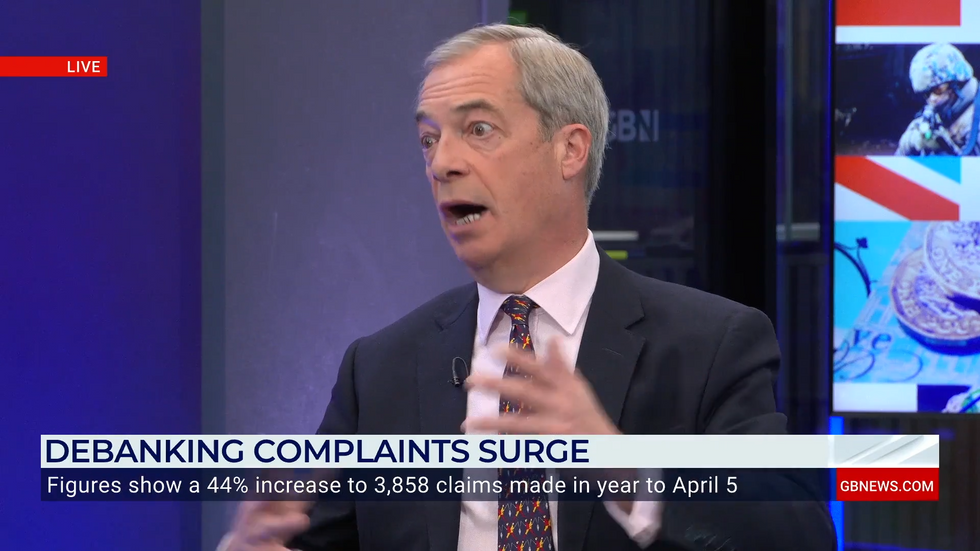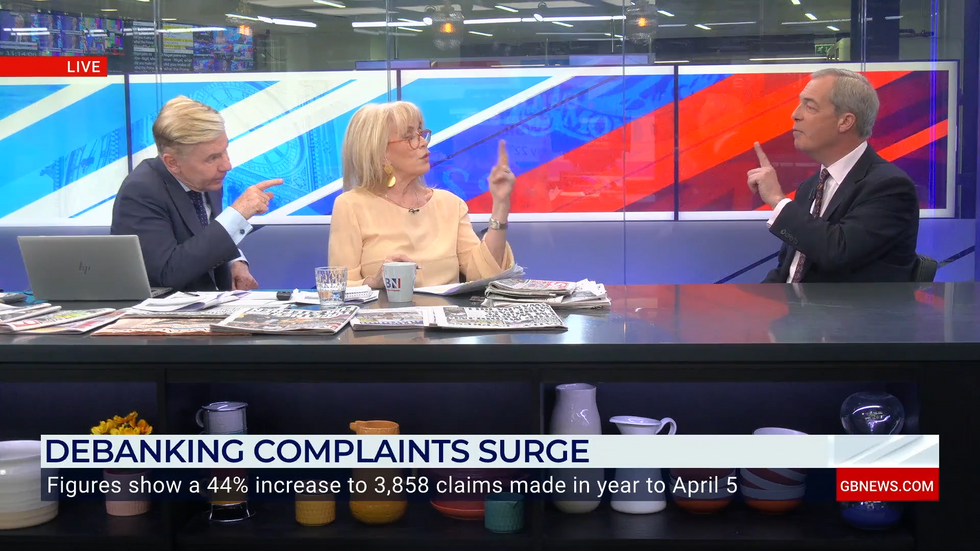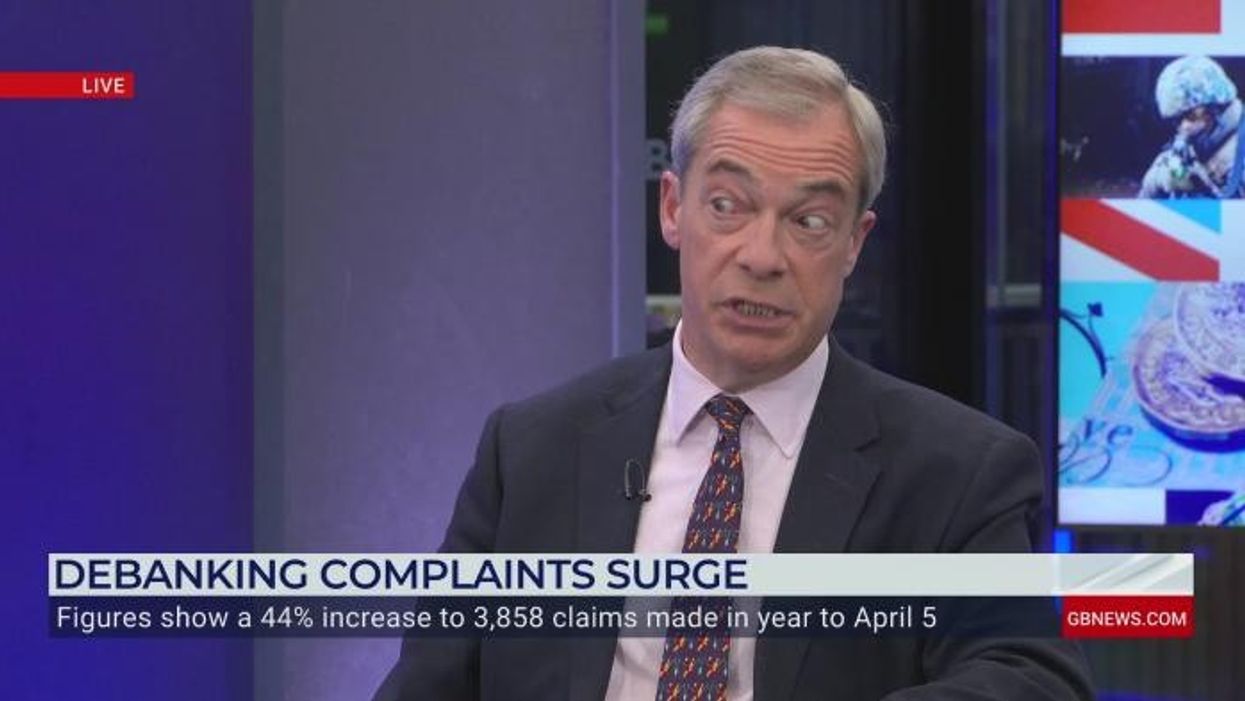‘Shows how deep woke culture has gone’: Nigel Farage explains ‘alarming’ surge of debanking complaints

Complaints have soared by 44 per cent
Don't Miss
Most Read
Latest
Nigel Farage says EU regulation is to blame for the “alarming” surge of debanking complaints.
According to the latest figures, complaints have soared by 44 per cent as businesses deal with a spike in account closures.
Speaking on GB News, Farage spoke about his recent debanking troubles that led to the resignation of NatWest CEO Dame Alison Rose.
He said people are often afraid to openly admit to being debanked.

Nigel Farage says EU laws are behind the rise in debanking complaints
|GB NEWS
“When I was given notice that my bank accounts were going to close, I thought for a few weeks, ‘do I say in public what is going to happen to me, or do I look for a resolution?’ Finding a resolution was difficult”, he said when asked by Andrew Pierce about the "alarming" rise.
“Finding a resolution was difficult because I was refused by 10 other high street banks, which just shows you how deep this corporate, woke culture has gone.
“In the end I went public, the reason is because I realised it’s not just me, this had been bubbling away for some time, but no one wants to admit they have been debanked.
“If you’re a company, to admit it could affect your credit rating or how customers see you, at an individual level, it’s a humiliating thing to do.
“I sort of came out as being debanked because I knew others would start to speak, and indeed they did.”
The former Brexit Party leader added he has helped to “lift a lid” on the debanking scandal, saying having access to a bank account is equivalent to having access to water in the modern, digitised age.

Nigel Farage joined Andrew Pierce and Carole Malone on GB News
|GB NEWS

Dame Alison Rose, former NatWest chief executive, resigned following the debanking row
| PAFarage says EU regulations that are “well intentioned” have resulted in “terrified” banks shutting down accounts.
“Most of it is to do with money laundering regulations”, he said.
“We have a whole series of Brussels directives that were transposed into British law and it means banks and others are terrified.
“Let’s say you run a business and that business turns over £8-9,000 a month. Let’s say you get a gigantic order and £20,000 comes in, an alarm goes off in the bank.
“Are you a front for a Colombian drug ring? Whatever it might be. The problem is, the legislation is so honorous that the compliance costs of the bank in checking all this out are massive. It’s estimated by Forbes that for every £1 of laundered money recovered in the UK banking system, the compliance cost is nearly £100.
“It’s easy for the banks to say, ‘we don’t have the manpower, we’re shutting you down’.
“At the root of this are a series of European Union money laundering directives that are well intended, but are carried out literally to the letter of the law in this country.”











